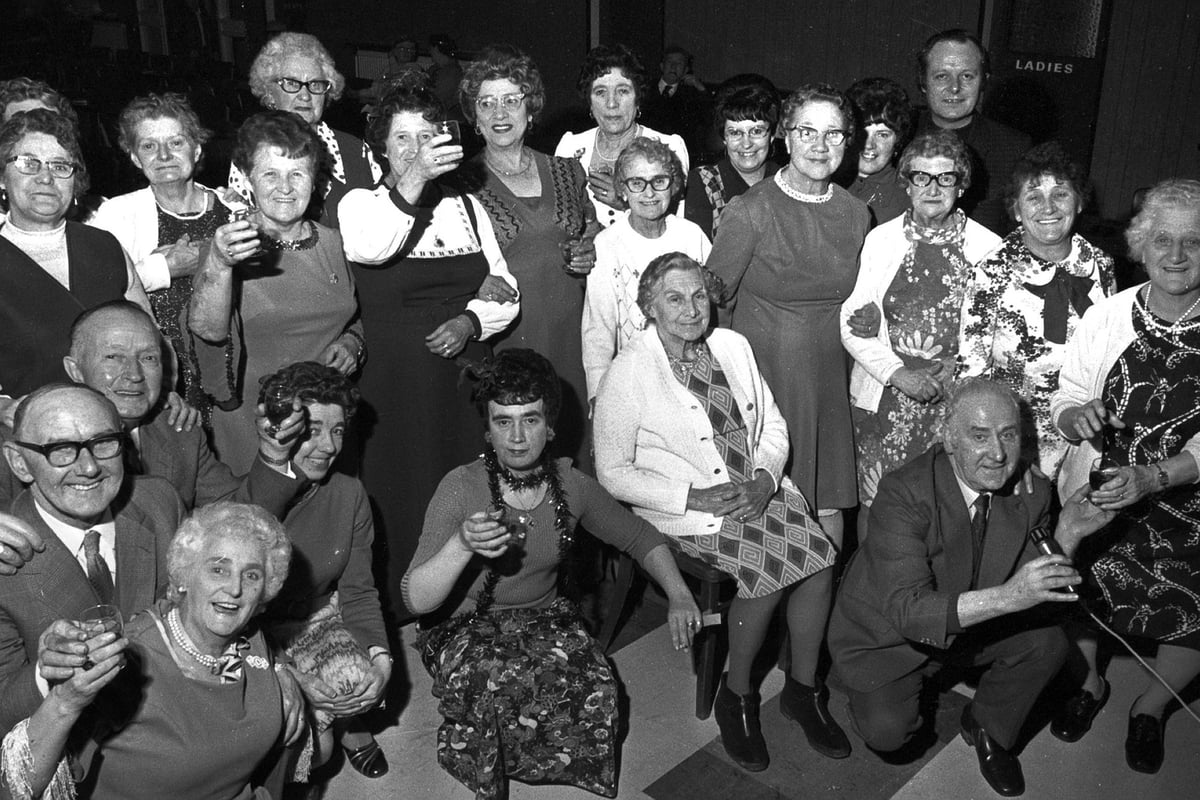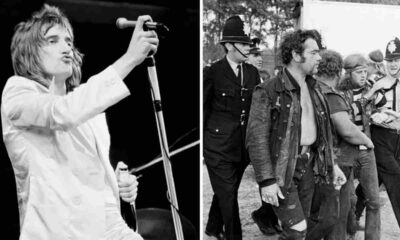Top Stories
Wigan’s Working Men’s Clubs Adapt to Survive Changing Times

The landscape of Wigan’s social clubs is shifting dramatically as many traditional working men’s clubs face closure. Once vibrant community hubs, these establishments have struggled to adapt to changing social habits and economic pressures. With only a few remaining, such as the Stubshaw Cross Community and Sports Club, efforts to preserve this cultural heritage are underway.
Historically, working men’s clubs emerged in the late 1800s, arising from the industrial boom that united working-class men. Governed by their members, these clubs were founded on principles of mutual aid and solidarity. By the early 1900s, they had become integral to community life, providing a space for social interaction, entertainment, and support. The Club and Institute Union (CIU) played a significant role in connecting these clubs nationwide, ensuring that members received affordable drinks and a sense of belonging.
At their peak during the 1950s and 60s, venues across Wigan hosted lively events, from darts matches to live music performances. “They were packed every weekend. Families came. There were no drunks, no riff-raff. Just people out for the night,” recalls local performer Susan Barrow, who entertained crowds with her music. These clubs were more than just places to drink; they were a celebration of working-class culture and identity.
However, economic decline and changing lifestyles began to take their toll from the 1990s onward. The rise of supermarkets selling inexpensive alcohol contributed to the decline of many clubs. Furthermore, the 2007 smoking ban significantly impacted revenues, as many former patrons chose to drink at home rather than in smoke-free environments. Today, well-known institutions such as Lower Ince Labour Club, Gidlow Labour Club, and Beech Hill Labour Club have all closed their doors, marking a poignant loss for the community.
Among the few clubs still thriving is Stubshaw Cross Community and Sports Club, managed by Adam Arstall, who took over in 2018. Since then, he has focused on transforming the club into a welcoming space that retains its community spirit. “None of this would have been done without the hard work of our club president Martin Knowles and the bar staff team,” notes Arstall, highlighting the collective effort involved in revitalising the club.
The club has diversified its offerings to attract a wider audience, hosting events such as salsa classes, acting lessons, and themed nights. Recently, around 80 local school pupils participated in a pizza-making event, illustrating the club’s commitment to community engagement. Every Thursday, bird auctions draw in more than 100 attendees, showcasing the club’s role as a community hub.
Stubshaw Cross serves as a venue for various gatherings, from christenings to weddings and wakes. It also sponsors local sports teams, emphasising its role in promoting community connection through activities like football and darts. “People can be put off by memberships and feel intimidated,” Arstall admits. “But while members do get rewards, everyone is so welcoming here; you don’t have to be a member to feel part of the community.”
Despite these successes, challenges remain. Rising energy costs and the age of the building complicate the financial landscape for clubs like Stubshaw Cross. Arstall acknowledges the difficulties: “The size and age of the building, prices of energy, the cost of products… it can be hard to turn a profit.” Live sports events remain a key draw, yet the high fees for broadcasting services such as Sky Sports can be burdensome for smaller venues.
To address these challenges, Stubshaw Cross has embraced innovation. The club recently acquired a large, cinema-style television for its function room, allowing it to host large gatherings for significant sporting events. “We can get up to 300 people in for World Cups and big rugby games,” Arstall states, proving that adaptability is key to survival.
Wigan’s remaining working men’s clubs, like Stubshaw Cross, continue to play an essential role in the community. They provide more than just entertainment; they foster connections among families, friends, and neighbours. As the landscape of social clubs changes, the commitment of dedicated staff and the support of the community offer hope for the future.
“It’s sad to see so many clubs close,” Arstall reflects. “But there is hope with hard work and belief.” For him and his team, preserving the legacy of working men’s clubs is about more than just survival; it’s about creating spaces that hold cherished memories for generations to come.
-

 World2 weeks ago
World2 weeks agoCoronation Street’s Shocking Murder Twist Reveals Family Secrets
-

 Entertainment1 week ago
Entertainment1 week agoAndrew Pierce Confirms Departure from ITV’s Good Morning Britain
-

 Entertainment5 months ago
Entertainment5 months agoKate Garraway Sells £2 Million Home Amid Financial Struggles
-

 Entertainment4 months ago
Entertainment4 months agoAnn Ming Reflects on ITV’s ‘I Fought the Law’ Drama
-

 Entertainment1 month ago
Entertainment1 month agoCoronation Street Fans React as Todd Faces Heartbreaking Choice
-

 Health4 months ago
Health4 months agoKatie Price Faces New Health Concerns After Cancer Symptoms Resurface
-

 World1 month ago
World1 month agoBailey Announces Heartbreaking Split from Rebecca After Reunion
-

 Entertainment2 weeks ago
Entertainment2 weeks agoTwo Stars Evicted from I’m A Celebrity Just Days Before Finale
-

 Entertainment4 months ago
Entertainment4 months agoCoronation Street’s Carl Webster Faces Trouble with New Affairs
-

 World2 weeks ago
World2 weeks agoKevin Sinfield Exceeds Fundraising Goal Ahead of Final Marathons
-

 Entertainment4 months ago
Entertainment4 months agoWhere is Tinder Swindler Simon Leviev? Latest Updates Revealed
-

 Entertainment5 months ago
Entertainment5 months agoMarkiplier Addresses AI Controversy During Livestream Response





















